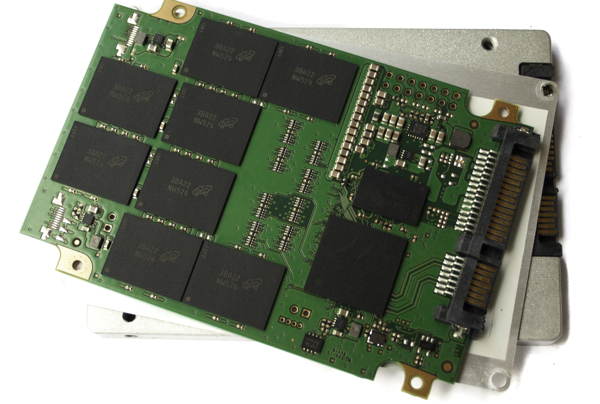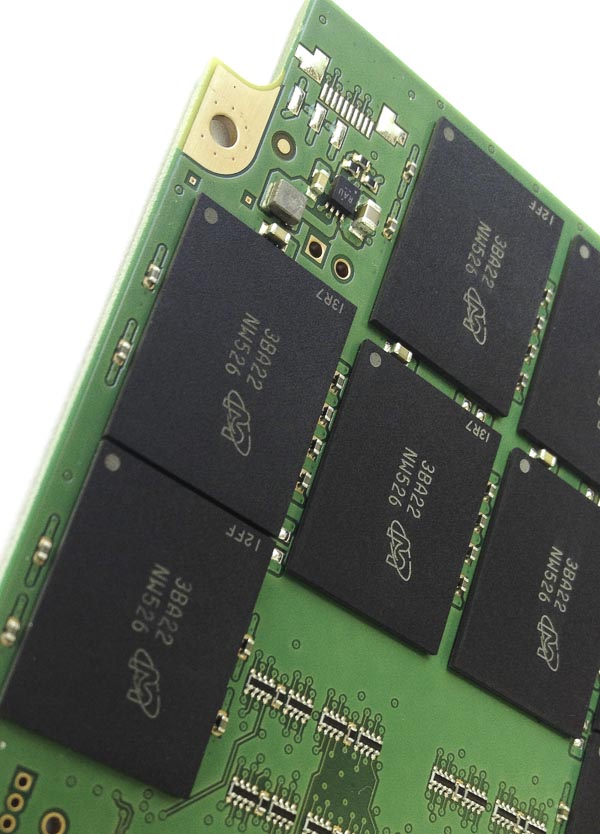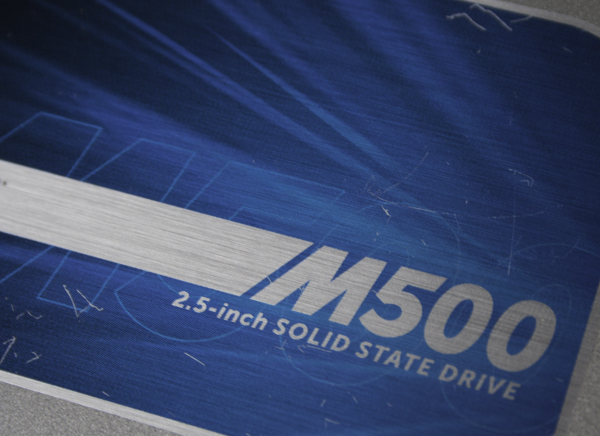SSD Deathmatch: Crucial's M500 Vs. Samsung's 840 EVO
Micron's consumer products division, Crucial, wasn't the first brand to introduce a 1 TB SSD. But it was the first to sell one for less than a fortune, and it sports some snazzy new features to boot. We got our hands on the entire line-up to test.
We Like The High-Capacity Crucial M500 SSDs Best...
As the solid-state drive market matures, we're watching companies take different routes to end up in largely the same place. Some are on the interstate, others are winding around the scenic route, and an unfortunate few became hopelessly lost along the way. That's alright by us; we're interested in both the journey and the destination.
We remain huge proponents of SSDs. Few other technologies can affect the snappiness of your PC quite like solid-state storage. As they become more economical and technically refined, we continue refining the way we test them, compare them, and ultimately recommend them. We've seen this road littered with potholes in the past, but launch after launch, the top contenders impress us over and over again with interface-limited performance, fresh features, and attractive pricing...
...it's just that we sometimes get the impression one or two companies are flying private jets, laughing at the poor suckers stuck in rush-hour traffic.
Sometimes that's Crucial's position, and sometimes its not. Parent company Micron moves tons of drives, and being huge certainly helps. Did we mention that Micron is the number-two DRAM manufacturer next to (surprise, surprise) Samsung.
The M500 is the organization's sole consumer offering at the moment. While it was beset with early availability issues, getting your hands on any drive in the line-up shouldn't be a problem today. That's good news, since affordable 1 TB SSDs are a significant milestone. Previously, one-thousand gigabytes required a pair of 512 GB drives in RAID (not always an elegant solution, to be sure). Now, Crucial achieves this using higher-density dies, but continues leaning on two-bit-per-cell NAND. Samsung proved a while back that three-bit-per-cell flash is viable too, and it's not outside the realm of possibility that Micron might jump on that bandwagon in the future.
This takes us to the unavoidable comparison with Samsung's 840 EVO. We just reviewed that entire line-up in Samsung 840 EVO SSD: Tested At 120, 250, 500, And 1000 GB. Although the 840 EVOs employ triple-level cell memory, it gets a big boost from some quantity of emulated SLC, too. Consequently, the EVO is on par with, and sometimes ahead of the M500 in write performance benchmarks. Read performance is squarely in Samsung's camp, though.
The 840 EVO is missing power loss protection, cross-die redundancy, and it currently lacks Opal 2.0 encryption, which is one of the M500's aces. Samsung says its EVO will get that last feature in time, though the discussion is largely academic until the new 840 shows up for sale anyway. Both drive families sport three years of warranty coverage, but suddenly-lower pricing on the M500s might give them an edge.
Get Tom's Hardware's best news and in-depth reviews, straight to your inbox.
What Crucial's latest offerings lack is the EVO's sweet set of consumer-friendly management and cloning tools. The company also isn't selling the M500s with installation kits, though a standalone upgrade package is available separately for $20 from Crucial's Web store. Samsung, on contrast, adds a USB 3.0-to-SATA adapter to its installation kit (though that luxury will add to the 840 EVO's price tag).
At the end of the day, we have to break our recommendations down by capacity. If 128- and 256 GB-class offerings are big enough for you, then it's hard for us to get behind the smaller M500s due to their performance. Conversely, the 480 and 960 GB models are genuinely quick. Speed alone doesn't make an SSD worth buying of course. Enhanced security and reliability features rate way up there, too. Ingenuity might be a better selling point, except that ingenuity rarely shows up on benchmarks. So, we continue plugging away at our M500s and 840 EVOs to get a better sense of how long they'll last.
Now that the 960 GB versions of the M500 are plentiful (they weren't at first), the worst thing we can say about the behemoth is that its metallic label gets marred if you so much as breathe toward it. This makes for bad beauty shots. But we're still pretty enamored with the hardware underneath.
Current page: We Like The High-Capacity Crucial M500 SSDs Best...
Prev Page Head To Head: Crucial's M500s Vs. Samsung's 840 EVOs-
Someone Somewhere I think you mixed up the axis on the read vs write delay graph. It doesn't agree with the individual ones after, or the writeup.Reply -
Someone Somewhere Even 3bpc SSDs should last you a good ten years...Reply
The SSD 840 is rated for 1000 P/E cycles, though it's been seen doing more like ~3000. At 10GB/day, a 240GB would last for 24,000 days, or about 766 years, and that's using the 1K figure.
You're free to waste money if you want, but SLC now has little place outside write-heavy DB storage.
EDIT: Screwed up by an order of magnitude. -
cryan Reply11306005 said:I think you mixed up the axis on the read vs write delay graph. It doesn't agree with the individual ones after, or the writeup.
You are totally correct! You win a gold star, because I didn't even notice. Thanks for catching it, and it should be fixed now.
Regards,
Christopher Ryan
-
cryan Reply11306034 said:I would only buy SSD that uses SLC memory. I dont wan't to buy new drive every year or so.
Not only are consumer workloads completely gentle on SSDs, but modern controllers are super awesome at expanding NAND longevity. I was able to burn through 3000+ PE cycles on the Samsung 840 last year, and it only is rated at 1,000 PE cycles or so. You'd have to put almost 1 TB a day on a 120 GB Samsung 840 TLC to kill it in a year, assuming it didn't die from something else first.
Regards,
Christopher Ryan
-
Someone Somewhere I'd like to see some sources on that - for starters, I don't think the 840 has been out for a year, and it was the first to commercialize 3bpc NAND.Reply
You may be thinking of the controller failures some of the Sandforce drives had, which are completely unrelated to the type of NAND used. -
mironso Well, I must agree with Someone Somewhere. I would also like to see sources for this statement: "Yes, in theory they last 10 years, in practise they last a year or so.".Reply
I would like to see, can TH use SSD put this 10GB/day and see for how long it will work.
After this I read this article, I think that Crucial's M500 hit the jackpot. Will see Samsung's response. And that's very good for end consumer. -
edlivian It was sad that they did not include the samsung 830 128gb and crucial m4 128gb in the results, those were the most popular ssd last year.Reply -
Someone Somewhere You can also find tens of thousands of people not complaining about their SSD failing. It's called selection bias.Reply
Show me a report with a reasonable sample size (more than a couple of dozen drives) that says they have >50% annual failures.
A couple of years ago Tom's posted this: http://www.tomshardware.com/reviews/ssd-reliability-failure-rate,2923.html
The majority of failures were firmware-caused by early Sandforce drives. That's gone now.
EDIT: Missed your post. First off, that's a perfect example of self-selection. Secondly, those who buy multiple SSDs will appear to have n times the actual failure rate, because if any fail they all appear to fail. Thirdly, that has nothing to do with whether or not it is a 1bpc or 3 bpc SSD - that's what you started off with.
This doesn't fix the problem of audience self-selection
-
Someone Somewhere You were however trying to stop other people buying them...Reply
Sounds a bit like a sore loser argument, unfortunately.
SSDs aren't perfect, but they generally do live long enough to not be a problem. Most of the failures have been overcome by now too.
Just realised there's an error in my original post - off by a factor of ten. Should have been 66 years. -
warmon6 Reply11306841 said:I am not talking about Samsung SSD-s, I am talking about SSDs in general. And I am not going to provide any sources because SSD fail all the time after a year or so. That is the raility. You can find, on the internet, people complaining abouth their SSD failing. There are a lot of them...
Also, SLC based SSD-s are usually "enterprise", so they are designed for reliability and not performance, and they don't use some bollocks, overclocked to the point of failure, controllers. And have better optimised firmware...
Tell that to all the people on this forum still running intel X-25M that launched all the way back in 2008 and my Samsung 830 that's been working just fine for over a year.......
See what you're paying attention too is the loudest group of ssd owners. The owners that have failed ssd's.
See it's the classic "if someone has a problem, there going to be the one that you hear and the quiet group, isn't having the problem" issue.
Those that dont have issues (such as myself) dont mention about our ssds and is probably complaining about something else that has failed.


